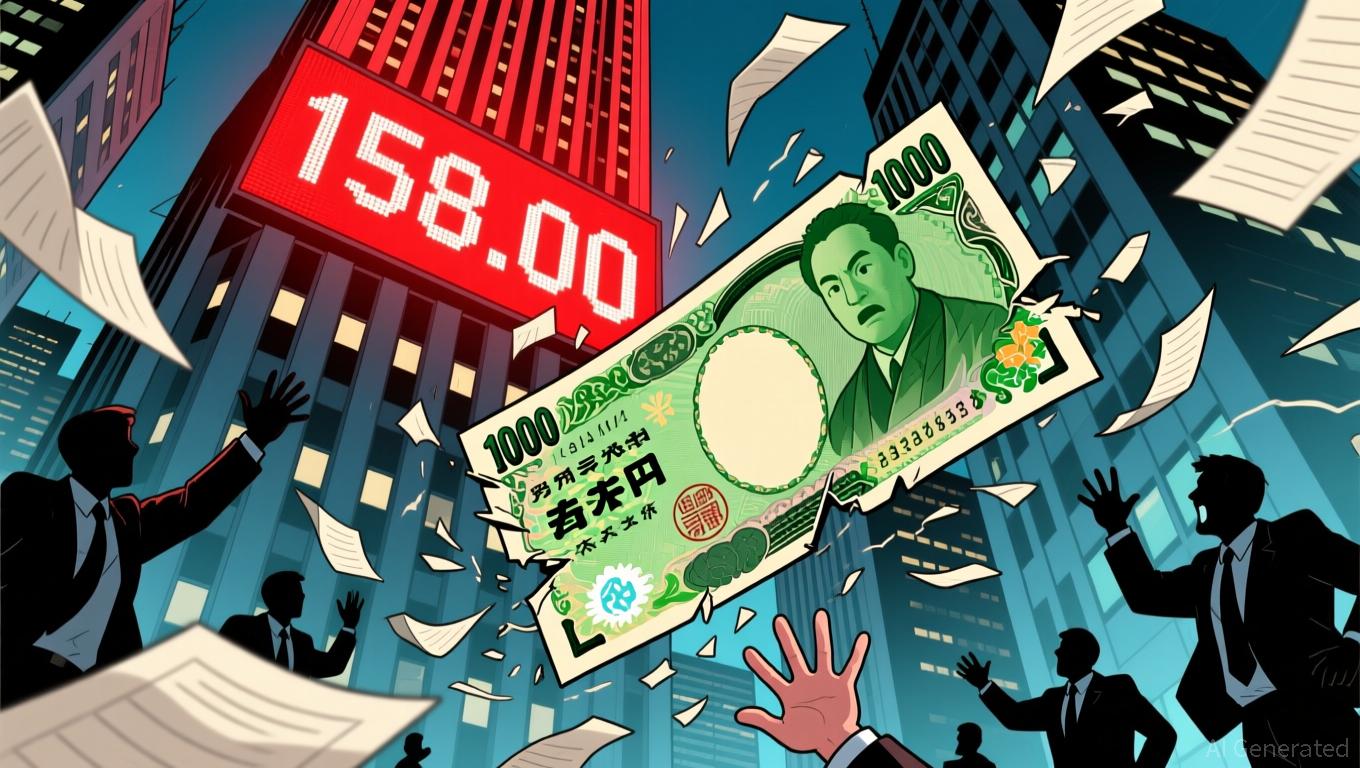Ethereum's Emergence as a Corporate Yield Instrument Faces Regulatory Examination
- Over 55 entities now hold significant ETH reserves, using staking (3-5% yields) and DeFi lending to optimize balance sheets, creating supply-side pressures as corporate holdings exceed annual ETH issuance by 186x. - GSR's first ETF bundling ETH-holding firms and Chinese companies like Jiuzi Holdings ($1B crypto allocation) signal institutionalization, blending traditional finance with digital asset strategies. - Regulatory scrutiny of pre-announcement trading and staking's securities classification risks

The increasing use of
Financial products are formalizing institutional involvement. Crypto market-maker GSR has introduced the first ETF that aggregates companies with digital asset reserves, including those holding ETH. This move, part of a larger trend toward mainstream crypto adoption, could boost ETH demand by offering regulated pathways for corporations to engage with digital assets. Other ETFs, such as Grayscale’s
Corporate involvement is moving beyond conventional reserves. Jiuzi Holdings, a Chinese company specializing in EV charging infrastructure, recently authorized a $1 billion crypto investment plan, allocating funds to Bitcoin, Ethereum, and BNB. Their approach focuses on safeguarding long-term value and hedging against macroeconomic risks, reflecting a broader evolution in treasury management. Similar strategies by companies such as SharpLink Gaming and BitMine Immersion Technologies highlight Ethereum’s dual role as both a value store and an operational asset.
Nonetheless, regulatory oversight remains a significant factor. The U.S. Securities and Exchange Commission (SEC) and Financial Industry Regulatory Authority (FINRA) are examining unusual trading activity before corporate crypto disclosures, raising questions about market fairness title1 [ 1 ]. Although no official actions have been taken, these investigations underscore the dangers of selective information sharing and insider trading in the volatile crypto sector. Authorities are also assessing whether staking could be classified as a securities offering, a determination that might reshape corporate approaches.
Market experts believe Ethereum’s combined role as a reserve and yield asset could support price stability. Should institutional demand continue to exceed supply, ETH may experience upward price momentum, potentially reaching values like $5,864 if adoption accelerates. On the other hand, stricter regulations or a slowdown in corporate activity could see prices fall below $2,750, as observed in previous downturns. The balance between supply, yield opportunities, and regulatory developments will be crucial in shaping ETH’s future.
Corporate strategies for Ethereum are increasingly incorporating DeFi protocols and liquid staking derivatives, resulting in a hybrid financial model that merges traditional and digital asset management. This shift positions ETH as both a strategic reserve and a source of active income, setting it apart from Bitcoin’s more passive use. As platforms like Morpho and
The growth of Ethereum holdings among corporations signals a fundamental change in corporate finance, where digital assets are becoming essential tools for optimizing balance sheets rather than mere speculative bets. While regulatory ambiguity and liquidity issues remain challenges, the growing use of ETH through staking, ETFs, and DeFi lending points to a maturing market. These trends, combined with supply constraints, could support a positive outlook for ETH, provided adoption continues and regulatory frameworks evolve favorably.
Disclaimer: The content of this article solely reflects the author's opinion and does not represent the platform in any capacity. This article is not intended to serve as a reference for making investment decisions.
You may also like
Policy Showdown: Yen’s Decline Challenges Japan’s Economic Unity
- Japan's yen plunges to 10-month lows as dovish BoJ policies and fiscal stimulus clash with U.S. rate differentials. - Governor Ueda emphasizes data-driven decisions while Finance Minister Katayama warns of "disorderly" market intervention risks. - 21.3-trillion-yen stimulus package raises inflation to 3.0%, deepening policy tensions between fiscal expansion and monetary restraint. - Fed's delayed rate cuts and geopolitical factors like China's tourism decline compound yen's vulnerability to speculative s

Bitcoin Updates: Crypto Fear Index Drops to 11—Is This the Market Floor or Could Prices Fall Further?
- CMC Crypto Fear and Greed Index hits record low of 11, reflecting extreme market panic amid heightened volatility and regulatory uncertainty. - Bitcoin's 30% and Ethereum's 41% declines mirror broader selloffs, with MSTR losing 60% and BitMine dropping 52% as crypto-linked equities collapse. - Bank of America warns of 2018-style capitulation risks from stretched valuations and Fed rate-cut expectations, while PrimeXBT expands Solana integration to navigate sector challenges. - Analysts debate cyclical bo

Global authorities tighten oversight on cryptocurrencies as the yen’s decline highlights underlying economic vulnerabilities
- Bitcoin prices dropped globally as the yen hit a 10-month low, contrasting Canada's stablecoin regulatory advances with Asia's economic fragility. - Japan faces pressure to raise interest rates amid yen depreciation, while a ¥21.3 trillion stimulus aims to balance inflation and growth risks. - Canada's Bank of Canada will oversee stablecoin reserves, aligning with U.S. crypto regulations and signaling global tightening of crypto oversight. - UK's "Operation Destabilise" uncovered a $1B Russian-linked lau

XRP News Today: WPAHash Provides Consistent XRP Returns Despite Fluctuating Crypto Markets
- WPAHash, a London-based firm, launched an XRP-powered cloud hashing platform in November 2025 to generate passive income for crypto holders without technical expertise or hardware. - The platform combines XRP’s fast payments with distributed mining, offering 24/7 dynamic hash allocation, global data centers, and military-grade security for stable returns. - Tiered contracts ($100–$8,000) provide daily yields up to $128, with transparent dashboards tracking earnings and reinvestment data across 120 countr